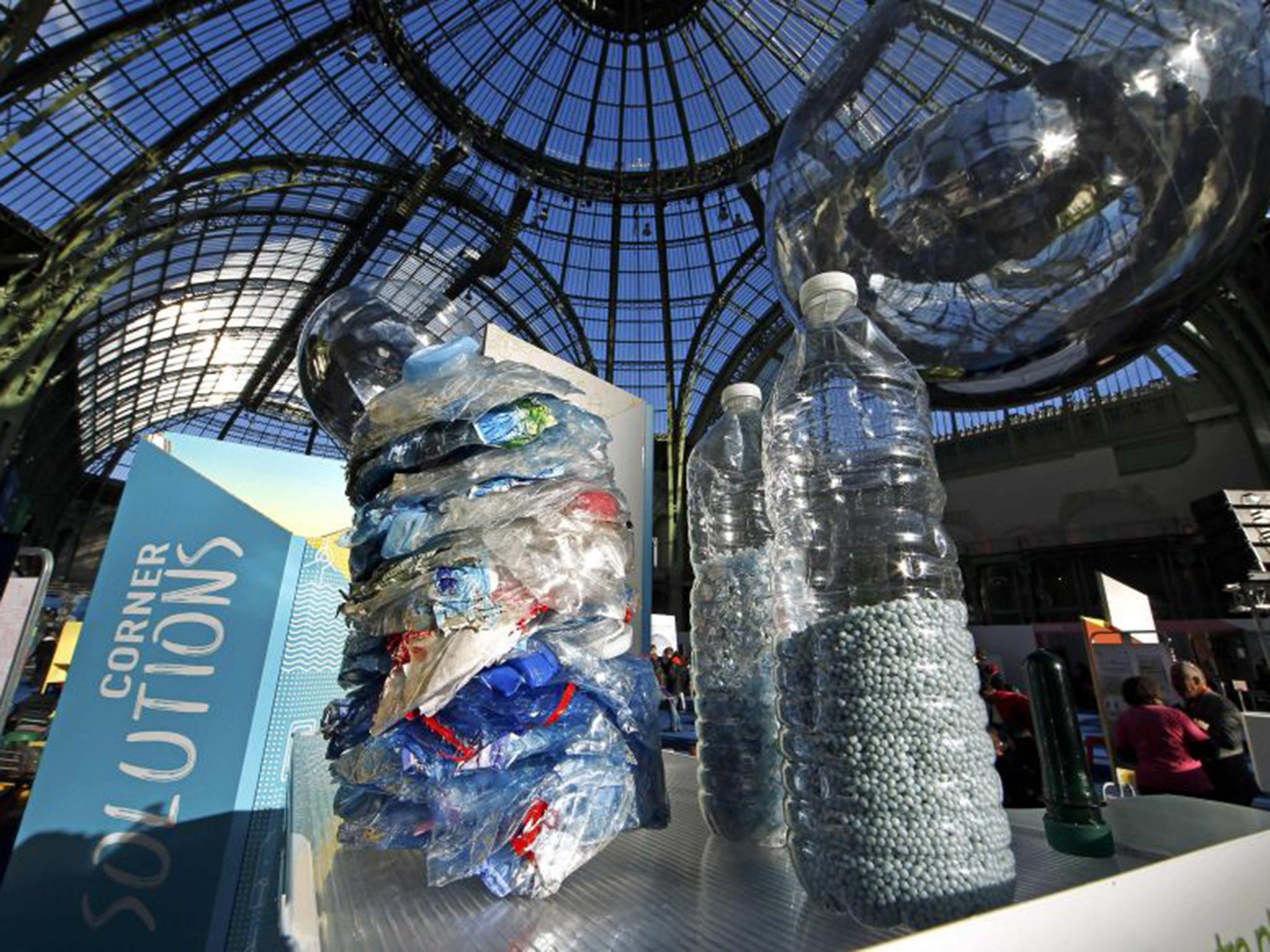COP21: UN conference hears calls for decisive and far-reaching agreement
All agree action is needed – the question is whether a bold enough deal can be reached

“This place is huge, and rightly so,” observed Nicola Sturgeon as she surveyed the crowds at the start of the crucial second week of the UN global warming summit in Paris.
The First Minister of Scotland was marvelling at the sheer scale of the proceedings, as 40,000 people bustled around the 60-hectare conference centre in the Le Bourget suburb, not far from Charles De Gaulle airport.
Ministers from 192 countries and their advisers rush around in suits, rubbing shoulders with UN officials and numerous French politicians. Alongside them a scruffier collection of campaigners, journalists and technicians toil away – while an army of support staff (security guards, cleaners and caterers) make up the third summit tribe.
One way or another, everybody here will be involved in the quest to agree decisive action to curb global warming. World leaders have pledged to agree a treaty that will limit global warming to 2C, beyond which scientists warn the consequences could become increasingly devastating.
They have until the night of 11 December to finalise a strong deal. If they miss their chance and produce a weak agreement, some experts fear it will become too late to save the world from catastrophic climate change.
So one week into the fortnight, how are things going?
“The mood seems quite optimistic to me,” said Ms Sturgeon, a few hours after arriving at the conference. But like everybody I spoke to, she added that much work remains to be done.
The thorniest of the issues still to be resolved is the long-running tension between the rich and the poor countries. While the rich countries have produced the bulk of the greenhouse gas emissions that cause global warming, the poorer ones tend to be the worst affected because many are in hot or low-lying areas – while they also have less cash to deal with the damage.
India, in particular, is angry that it is being asked to dramatically curb its carbon emissions just as it embarks on a period of significant growth. If any government scuppers a deal, it is likely to be New Delhi, analysts fear.
Climate change protests around the world
Show all 25“India’s objective is to establish an effective [agreement] based on climate justice, which distinguishes between obligations of the rich countries, based on their historical responsibility in causing climate change, and the less onerous obligations of the developing world,” Ashoka Lavasa, India’s secretary to the ministry of environment, told The Independent, weighing his words carefully.
Another issue still to be settled is the amount of money rich countries are prepared to channel into the developing nations to help them deal with global warming.
This is a particular issue for Gurdial Singh Nijar, a member of the Malaysian delegation and spokesman for the Like Minded Group, a negotiating bloc of developing countries that account for more than half of the world’s population.
“The extent to which developing countries will take on the obligation to reduce their emissions is dependent upon the extent to which the developed countries give them financial support to implement those changes. But they’re not giving the finance,” Mr Nijar told The Independent.
He dismisses recent figures from the Organisation for Economic Co-operation and Development (OECD) that the rich countries are now funnelling $62bn a year into developing countries, arguing that the majority is in the form of loans and repackaged overseas development aid.
The treaty also needs to include a robust system to measure and monitor countries’ carbon emissions to make sure they are honouring their commitments to become greener. In the run-up to the Paris conference, more than 175 countries collectively pledged to make sufficient emissions cuts to limit climate change to 2.7C. This is seen as a good start but not nearly enough, so any agreement will need to include a system under which countries are required to “ratchet up” their emissions targets every few years, until the 2C target can be met.
As Gordon Brown’s former environment advisor, Michael Jacobs is watching the proceedings in Paris with interest. He was involved in the Copenhagen summit in 2009, the last time world leaders tried to agree decisive action on global warming. The summit failed to agree meaningful action.
He says the mood is very different this time, largely because the cost of green power has come down so far that leaders feel more confident that a mass switch to renewable power can be achieved.
What is his prediction for this week? “Nothing serious has been resolved – the mood is workmanlike and constructive. There is likely to be an agreement, but it’s a question of how ambitious it is.”
Subscribe to Independent Premium to bookmark this article
Want to bookmark your favourite articles and stories to read or reference later? Start your Independent Premium subscription today.

Join our commenting forum
Join thought-provoking conversations, follow other Independent readers and see their replies